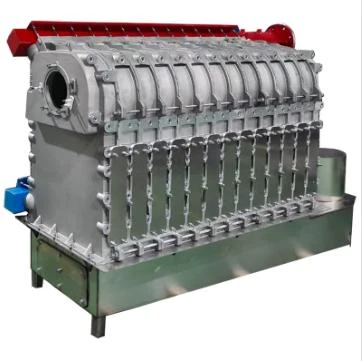- Afrikaans
- Albanian
- Amharic
- Arabic
- Armenian
- Azerbaijani
- Basque
- Belarusian
- Bengali
- Bosnian
- Bulgarian
- Catalan
- Cebuano
- China
- China (Taiwan)
- Corsican
- Croatian
- Czech
- Danish
- Dutch
- English
- Esperanto
- Estonian
- Finnish
- French
- Frisian
- Galician
- Georgian
- German
- Greek
- Gujarati
- Haitian Creole
- hausa
- hawaiian
- Hebrew
- Hindi
- Miao
- Hungarian
- Icelandic
- igbo
- Indonesian
- irish
- Italian
- Japanese
- Javanese
- Kannada
- kazakh
- Khmer
- Rwandese
- Korean
- Kurdish
- Kyrgyz
- Lao
- Latin
- Latvian
- Lithuanian
- Luxembourgish
- Macedonian
- Malgashi
- Malay
- Malayalam
- Maltese
- Maori
- Marathi
- Mongolian
- Myanmar
- Nepali
- Norwegian
- Norwegian
- Occitan
- Pashto
- Persian
- Polish
- Portuguese
- Punjabi
- Romanian
- Russian
- Samoan
- Scottish Gaelic
- Serbian
- Sesotho
- Shona
- Sindhi
- Sinhala
- Slovak
- Slovenian
- Somali
- Spanish
- Sundanese
- Swahili
- Swedish
- Tagalog
- Tajik
- Tamil
- Tatar
- Telugu
- Thai
- Turkish
- Turkmen
- Ukrainian
- Urdu
- Uighur
- Uzbek
- Vietnamese
- Welsh
- Bantu
- Yiddish
- Yoruba
- Zulu
डिस . 25, 2024 11:32 Back to list
types of steel casting
Understanding the Types of Steel Casting
Steel casting is a fundamental process in the manufacturing and engineering sectors, known for its ability to produce complex and durable parts with excellent surface finish and dimensional accuracy. It is a key method used in a variety of industries, including automotive, aerospace, construction, and energy. The versatility of steel casting comes from the different types of steel used, each tailored for specific applications and properties. In this article, we will explore the primary types of steel casting and their respective characteristics.
1. Carbon Steel Castings
Carbon steel castings are the most common type, mainly composed of iron, carbon, and varying percentages of alloying elements. The carbon content typically ranges from 0.1% to 1.5%, which influences the hardness and strength of the final product. Higher carbon content results in greater hardness and wear resistance but reduced ductility. Carbon steel castings are widely used in machinery components, automotive parts, and structural applications due to their good mechanical properties and weldability.
2. Alloy Steel Castings
Alloy steel castings are formulated by adding elements such as chromium, nickel, molybdenum, and vanadium to carbon steel. These additives enhance various properties, including strength, toughness, and resistance to corrosion and wear. The specific alloying elements influence the casting’s microstructure, allowing for improved performance in demanding environments, such as those encountered in the oil and gas sector or heavy machinery. Common applications for alloy steel castings include gears, shafts, and critical components in industrial machinery.
3
. Stainless Steel Castingstypes of steel casting

Stainless steel castings are known for their exceptional corrosion resistance, attributed to the high chromium content which forms a protective oxide layer on the surface. Stainless steel types, such as austenitic, martensitic, and ferritic grades, are utilized depending on the required mechanical properties and corrosion resistance. Austenitic stainless steels, for instance, are non-magnetic and are often used in food processing, chemical processing, and marine applications. Martensitic grades offer higher strength and hardness and find uses in cutlery and pump components.
4. Tool Steel Castings
Tool steel castings are specifically designed for the manufacturing of tools, dies, and molds. These steels are alloyed with tungsten, molybdenum, and vanadium, contributing to their hardness and ability to retain a sharp edge under high-stress conditions. Tool steels are essential for making various engineering tools, such as cutting tools, drills, and taps. Their capacity to withstand heat and wear makes them invaluable in high-performance applications.
5. Ductile Iron Castings
Although not strictly a steel casting, ductile iron (also known as spheroidal graphite iron) is often discussed in conjunction with steel due to its similar applications and processing characteristics. Ductile iron is renowned for its high tensile strength, excellent ductility, and shock resistance, making it suitable for demanding applications such as automotive parts, heavy machinery components, and piping systems. The unique microstructure of ductile iron allows it to absorb energy and resist fracture, enhancing its performance in various conditions.
Conclusion
In summary, steel casting encompasses a wide range of materials tailored to meet specific application requirements. From carbon and alloy steels to stainless and tool steels, each type offers unique advantages in terms of mechanical properties and usability. Understanding these different types of steel casting is essential for engineers and manufacturers aiming to select the right material for their projects. The diversity of steel casting continues to evolve, driven by innovations in metallurgy and manufacturing techniques, ensuring that it remains a vital component in various industries.
-
8mm Thin-Walled Cast Steel Manhole Cover Pallet Bottom Ring | Durable
NewsAug.04,2025
-
Premium Cast Iron Water Main Pipe: Durable, Corrosion-Resistant
NewsAug.03,2025
-
Durable Cast Iron Water Mains | AI-Optimized Systems
NewsAug.02,2025
-
High-Efficiency Propane Boiler for Baseboard Heat | Save Energy
NewsAug.01,2025
-
Premium Source Suppliers for Various Gray Iron Castings
NewsJul.31,2025
-
Durable Cast Iron Water Main Pipes | Long-Lasting
NewsJul.31,2025


